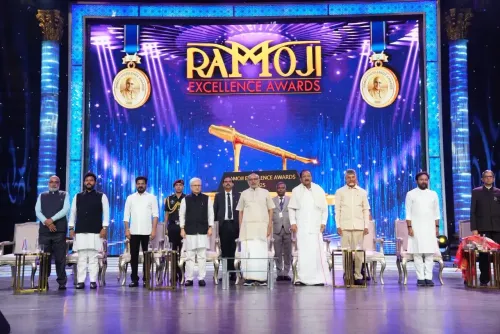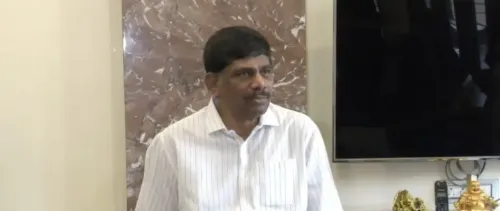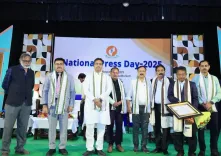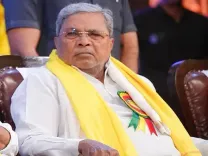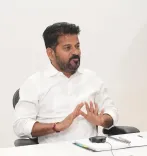How Does Kashmir Mirwaiz Umar Farooq Show Support for Palestine and Regret for Ladakh?

Synopsis
Key Takeaways
- Mirwaiz Umar Farooq advocates for Palestinian rights.
- He regrets the recent loss of life in Ladakh.
- True peace requires justice and dialogue.
- He criticizes India's approach to handling Jammu and Kashmir.
- Community autonomy in managing religious institutions is essential.
Srinagar, Oct 2 (NationPress) Kashmir Mirwaiz Umar Farooq on Thursday showed his support for the Palestinian people and expressed his sorrow over the loss of life in Ladakh.
Speaking to reporters during a religious conference, Mirwaiz Umar stated that true peace can only be established through justice in areas of conflict around the world.
On the topic of Palestine, he conveyed his strong backing for the inhabitants there, stating, “We fervently wish for the implementation of a ceasefire and an end to the genocide of Palestinians.”
“However, beyond merely halting the war temporarily, a genuine, equitable, and enduring peace process is crucial. Whether it is initiated by Western nations or the Islamic bloc, this process must prioritize the aspirations of the Palestinian people above all else,” he emphasized.
“Their undeniable right to their land, their future, their dignity, and their commitment to an independent Palestinian state should be the cornerstone of any significant resolution. Without this, peace will remain unattainable.”
“The decades of hardship faced by the Palestinians is a source of embarrassment for the global conscience, especially for world leaders. A selective approach to peace that overlooks justice only prolongs conflict,” he remarked.
He expressed his condolences for the recent tragic loss of lives, stating, “It is regrettable that the Government of India, instead of addressing the aspirations of the people of Ladakh, is further complicating the situation by being harsh.”
“History has repeatedly shown that peace cannot be imposed through coercion. For peace to flourish, commitments made to the people must be honored, and dialogue should replace confrontation.”
He also voiced concerns regarding what he termed the frequent restrictions imposed on his movements by authorities.
“For the past three consecutive Fridays, I have been under house arrest without any explanation. I am uncertain when or why these restrictions will be imposed again. Even peaceful gatherings of the Ulema Council are prohibited,” he stated.
“In my view, the Government of India needs to reevaluate its approach towards Jammu and Kashmir. Issues cannot be resolved through force and narrative control. Constructive engagement and dialogue are far more effective and humane ways to achieve lasting peace,” he added.
Commenting on Waqf properties, he stated, “The community must be allowed to manage its religious institutions with autonomy and respect. The sanctity of these religious institutions must be upheld.”
“Interference in religious affairs must cease as it offends people's sentiments and fosters unnecessary friction,” he concluded.

